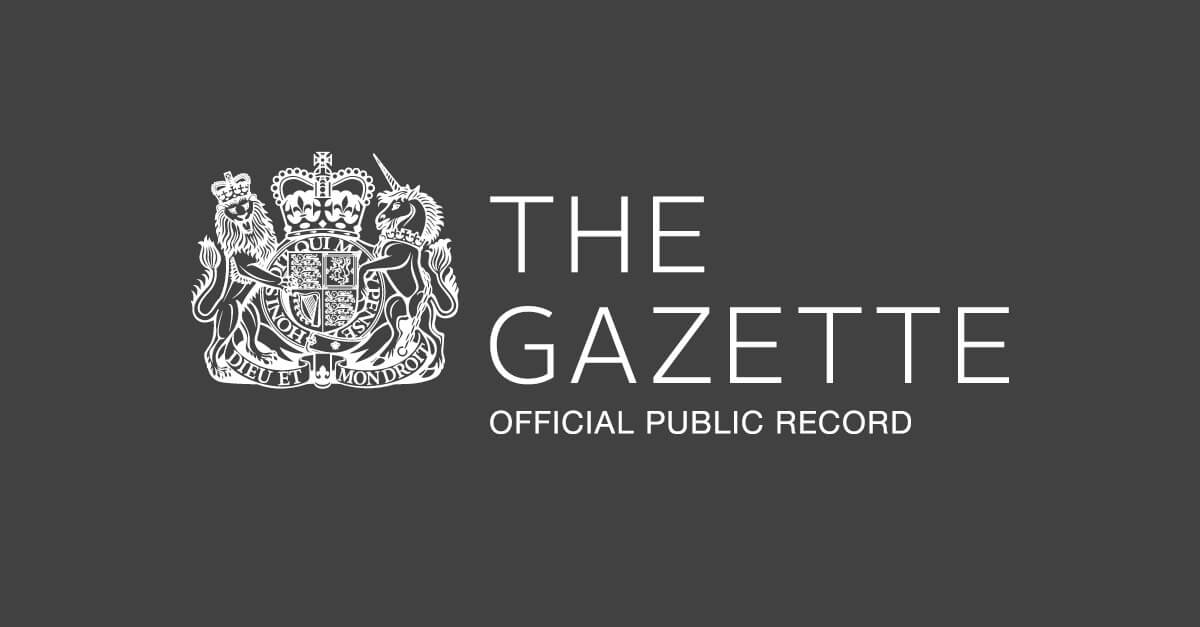Notice for Compulsory Strike-Off Meaning: A Comprehensive Summary
Notice for Compulsory Strike-Off Meaning: A Comprehensive Summary
Blog Article
A Detailed Evaluation of the Legal Commitments Bordering Gazette Notification Magazine
The world of gazette notice publication is a labyrinth of legal details that demand precise attention. From the strict legal needs governing the web content of notifications to the ramifications of non-compliance, browsing this landscape is no unimportant job. Understanding the crucial legislation that determines these obligations is vital for entities obligated to distribute notices with this authorities channel. Nonetheless, the complexities prolong past mere legal obligations, discussing ideal methods that can strengthen compliance efforts. As we unwind the layers of lawful responsibilities surrounding gazette notification magazine, a detailed evaluation is necessary to grasp the gravity of these obligations and the effects of falling short to comply with them.
Legal Requirements for Gazette Notices

Lawful demands for Gazette notifications determine the certain standards that must be met for the publication of official notices in the Gazette. One secret demand is the exact and full disclosure of information in the notice.
Furthermore, lawful demands commonly mandate the prompt entry of notifications to the Gazette. Timeliness is important to make certain that the details gets to the desired receivers within a practical duration, enabling them to take needed actions or make informed decisions without delay. Failing to follow these timelines may result in legal consequences or render the notification inadequate.

Implications of Non-Compliance
Non-compliance with the policies established forth for Gazette notification publication can result in legal repercussions, economic penalties, and reputational damage for the entity or private liable for the magazine. Failure to release notifications in the Gazette within the specified timeframe or erroneously disseminating information can lead to difficulties in applying rights, contractual commitments, or lawful proceedings. Furthermore, stopping working to satisfy the lawful commitments bordering Gazette notification magazine can result in the invalidation of the notice itself, rendering it legally ineffective.
Trick Regulation Governing Magazine
Provided the essential implications of non-compliance with Gazette notice publication needs, recognizing the essential regulations controling this procedure is paramount for guaranteeing lawful adherence and keeping openness. Additionally, particular markets might have their very own laws regarding notice publication, such as environmental companies needing particular news to be made public for transparency and accountability purposes. Comprehending these legal structures is critical for companies and people liable for releasing Gazette notifications to stay clear of lawful consequences and maintain the concepts of great governance.
Entities Bound to Publish Notices
Entities accountable for the publication of Gazette notices play an essential duty in guaranteeing openness and legal conformity within the framework of governmental guidelines. Official gazette workplaces offer as the key platforms for the magazine of legal notifications at the nationwide, state, or regional notice for compulsory strike-off meaning degrees, making sure that such information is easily accessible to the public.
These entities are obligated to publish notifications without delay and accurately to comply with lawful demands and support the concepts of openness and responsibility in administration. Failing to release required notifications in a prompt manner might bring about legal repercussions, threatening the reputation and effectiveness of the regulative structure. Therefore, it is necessary for these entities to fulfill their obligations carefully to keep public trust and guarantee that stakeholders are notified of significant legal developments.
Ideal Practices for Conformity
To ensure adherence to legal obligations surrounding Gazette notice publication, it is vital for companies to apply ideal techniques for conformity that boost openness and liability in sharing essential information to stakeholders. Among the basic ideal techniques is to develop clear inner procedures and guidelines for Gazette notice publication. This consists of appointing duty to details people or departments, setting timelines for drafting and evaluating notices, and guaranteeing compliance with magazine needs.

Final Thought
In verdict, comprehending the legal obligations bordering gazette notice publication is important for entities to comply with key regulation. Failure to publish notifications in the gazette can have severe ramifications, including lawful repercussions. It is essential for organizations to follow ideal methods for compliance to guarantee they meet their commitments under the law. Conformity with these demands is necessary to keep transparency and promote the policy of law.
Report this page